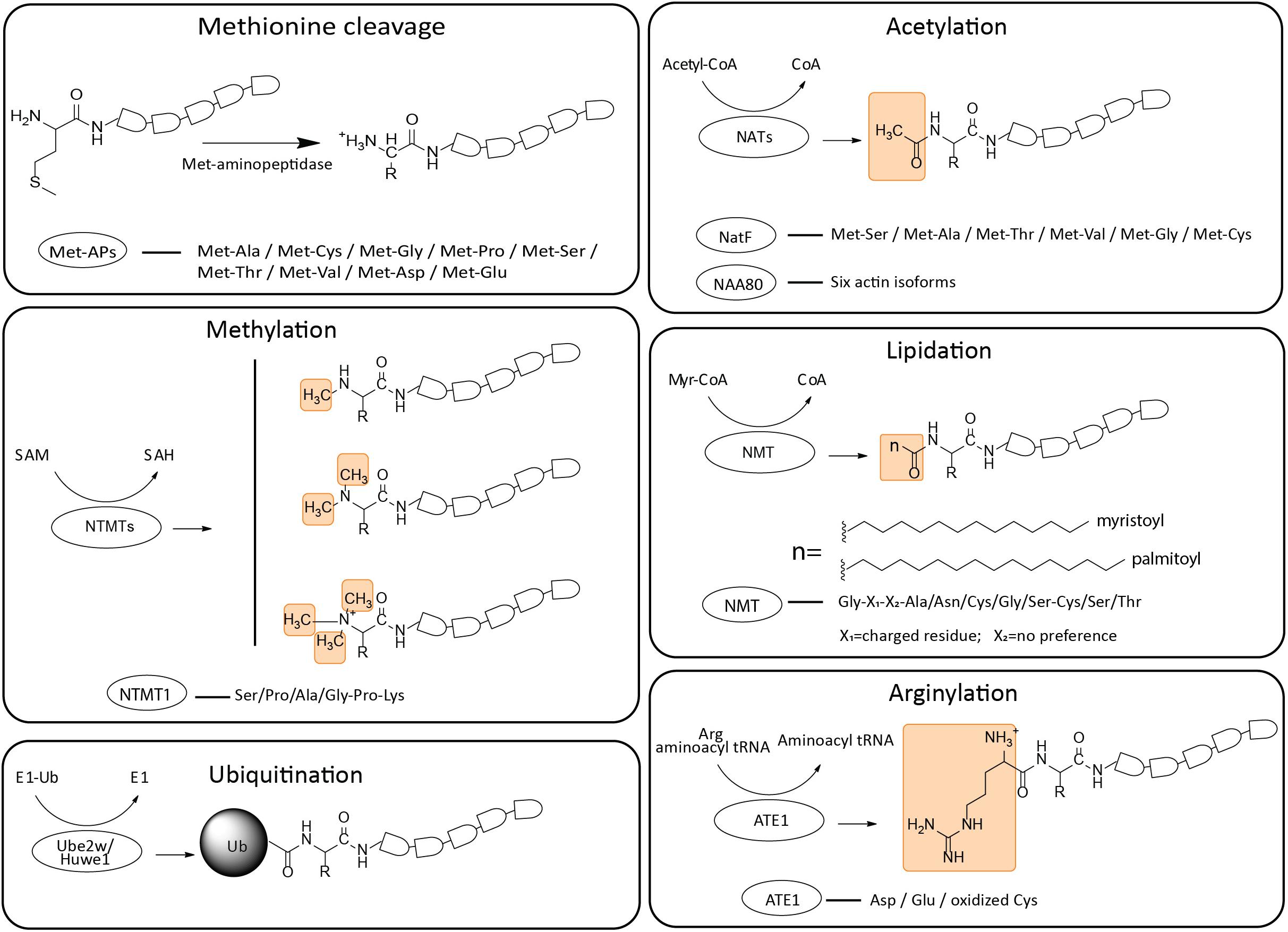Peptide Post-Translational Modification Identification Service
- Peptide Drug Development
- Disease Biomarker Screening
- Vaccine Development
- Structural Biology and Functional Research
Peptide Post-Translational Modification Identification Service refers to the systematic identification of post-translational modifications on peptide molecules through high-resolution mass spectrometry techniques and bioinformatics analysis. The core objective of this service is to precisely determine the modification types, modification sites, and relative abundance of modifications on peptides through mass spectrometry data, thereby providing researchers with in-depth insights into peptide structure and function.
Post-translational modifications (PTMs) are chemical modifications that occur after protein synthesis. They regulate protein structure, function, localization, and stability by chemically modifying amino acid residues in proteins. As components of proteins, peptide molecules also undergo these post-translational modifications, which affect their biological activity and interactions. Common post-translational modifications include phosphorylation, glycosylation, acetylation, methylation, and ubiquitination. These modifications play essential roles in biological processes such as cell signaling, gene expression regulation, and immune responses. Since post-translational modifications have a profound impact on peptide function and stability, accurately identifying the modification types and modification sites on peptides is crucial for understanding their function, revealing disease mechanisms, and developing novel drugs and biomarkers.
Leveraging advanced chromatography and mass spectrometry platforms, MtoZ Biolabs provides Peptide Post-Translational Modification Identification Service to precisely identify and quantify various post-translational modifications on peptide molecules. This service helps researchers systematically understand the impact of post-translational modifications on peptide function and activity, advancing research in drug development, disease biomarker screening, and vaccine development.

Chen L. et al. Front Cell Dev Biol. 2021.
Figure 1. Schematic representation of structural formulas and enzymatic preferences of N-terminal modifications.
Analysis Workflow
The general process for the Peptide Post-Translational Modification Identification Service is as follows:
1. Sample Preparation
Perform sample preparation, including solution optimization, concentration confirmation, and purity testing, to ensure the sample is suitable for subsequent analysis.
2. Mass Spectrometry Analysis
Choose the appropriate digestion method based on the peptide characteristics for enzyme digestion. Use liquid chromatography-mass spectrometry (LC-MS/MS) technology to efficiently separate and precisely measure the peptide fragments.
3. Data Analysis
Employ bioinformatics tools to analyze the mass spectrometry data, identifying and localizing post-translational modifications on the peptide. By comparing with protein databases, obtain detailed information about modification types and modification sites.
4. Quantitative Analysis
Based on mass spectrometry results, perform quantitative analysis of the abundance of different post-translational modifications, providing quantitative data for modified peptides.
5. Report Generation
Provide a detailed experimental report, including peptide modification types, modification sites, abundance data, and relevant spectra and data files.
Service Advantages
High Throughput and High Sensitivity
Utilizing LC-MS/MS technology, the service efficiently and sensitively detects a wide range of post-translational modifications in peptide samples.
Comprehensive Modification Type Coverage
The service supports the detection of various common and rare post-translational modifications, including phosphorylation, glycosylation, acetylation, methylation, ubiquitination, and more.
Precise Modification Site Identification
Using high-resolution mass spectrometry and advanced bioinformatics algorithms, the service accurately localizes modification sites, helping to deeply understand functional changes in peptides.
Quantitative Analysis Capability
Provides quantitative data for modified peptides, aiding researchers in understanding the trend of modifications under different conditions.
Customized Service
Based on the specific needs of clients, personalized experimental designs and technical support are provided to ensure the results align with research objectives.
High-Data-Quality:
Deep data coverage with strict data quality control. AI-powered bioinformatics platform integrates all Peptide Post-Translational Modification Identification Service data, providing clients with a comprehensive data report.
Sample Submission Suggestions
Sample Types: Supports synthetic peptides, naturally sourced peptides, recombinant expressed peptides, etc.
Storage and Transportation: Store at low temperatures (−20°C or −80°C). Dry ice transportation is recommended to avoid repeated freeze-thaw cycles.
Additional Notes: We recommend contacting us prior to sample submission for detailed and tailored sample preparation guidelines.
Applications
Examples of applications for the Peptide Post-Translational Modification Identification Service:
Precisely identify post-translational modifications on peptides, helping to optimize peptide drug design and enhance drug stability and biological activity.
Identify disease-related post-translational modifications, revealing potential biomarkers that provide a basis for early disease diagnosis and personalized treatment.
Study the post-translational modifications of antigen peptides, aiding in the optimization of vaccine immunogenicity and improving vaccine efficacy.
Accurately identify post-translational modification types on peptides, assisting in the study of protein folding, functional activation, and interactions with other molecules.
Deliverables
1. Comprehensive Experimental Details
2. Materials, Instruments, and Methods
3. Total Ion Chromatogram & Quality Control Assessment (project-dependent)
4. Data Analysis, Preprocessing, and Estimation (project-dependent)
5. Bioinformatics Analysis
6. Raw Data Files
Related Services
MS-Based Post-Translational Modification Analysis Service
How to order?







